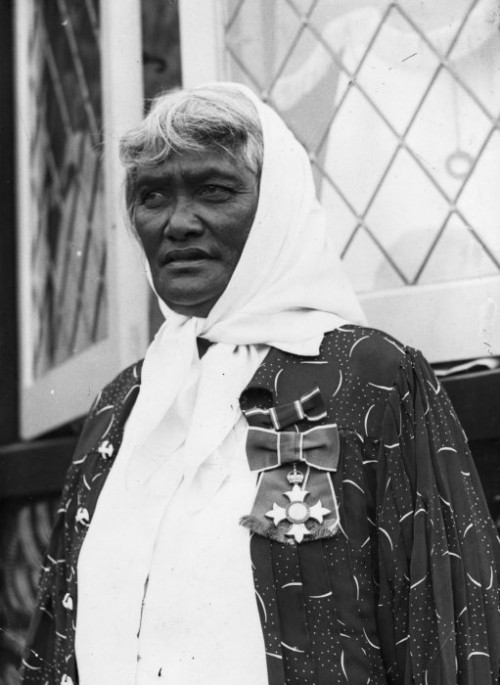
This photograph of Tainui–Waikato leader Te Kirihaehae Te Puea Herangi was taken about 1938. It shows her wearing the honour she was awarded that year, Commander of the British Empire.
Te Puea was a staunch opponent of conscription for Waikato. She was guided by the words of her grandfather King Tāwhiao. After making peace with the Crown in 1881, he forbade Waikato to take up arms again:
Listen, listen, the sky above, the earth below, and all the people assembled here. The killing of men must stop; the destruction of land must stop. I shall bury my patu in the earth and it shall not rise again … Waikato, lie down. Do not allow blood to flow from this time on.
Te Puea and others took this as an injunction never to fight again. Te Puea was also of the view that Waikato had 'its own King' and so had no need to 'fight for the British King'.
Credit
Alexander Turnbull Library
Reference: PAColl-5584-58
Permission of the Alexander Turnbull Library, National Library of New Zealand, Te Puna Matauranga o Aotearoa must be obtained before any reuse of this image.
How to cite this page
'Te Puea Herangi', URL: http://www.nzhistory.net.nz/media/photo/te-puea-herangi, (Ministry for Culture and Heritage), updated 1-Aug-2016

Community contributions